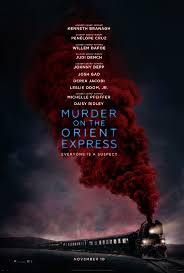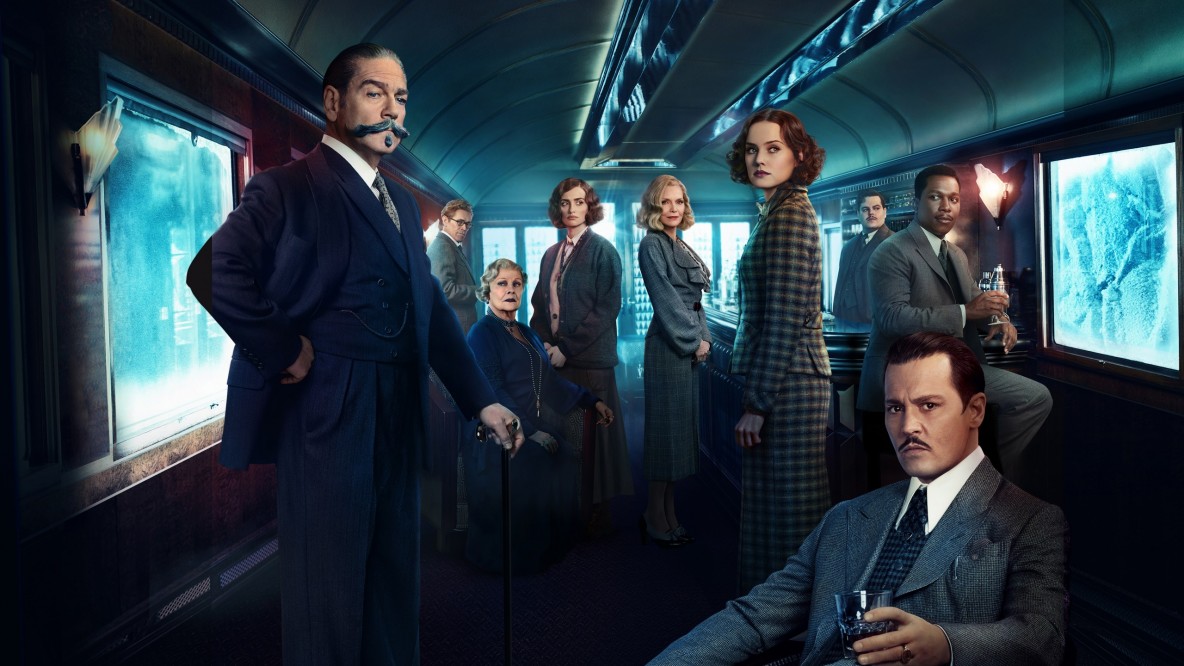‘Murder on the Orient Express’: A train derailment
1.5 out of 4 stars
Maybe Kenneth Branagh should stick to acting.
As director of the much-anticipated “Murder on the Orient Express,” he was handed a cast of stars. But instead of giving each their time to shine and have them complement each other, he basically threw them all in crockpot instead of crafting what should have been a meal worth savoring.

Perhaps no director has done so little with such star power than Branagh. He had Johnny Depp, Michelle Pfeiffer, Judy Dench, Josh Gad, Penelope Cruz, Willem Dafoe and himself, among others, yet he basically took Agatha Christie’s iconic who-done-it book and turned it into a why-did-he-make it movie.
“Murder on the Orient Express,” which is a remake of the 1934 Christie novel and Sidney Lumet’s 1974 film that earned Ingrid Bergman an Oscar, is bound for oblivion, not Oscars. It’s not easy to turn a bestselling book into a better movie and “Murder on the Orient Express” is no exception, as the 114-minute film comes closer to tarnishing the book than living up to the literary classic.
For a movie that’s about a murder on a train as it makes its way through Europe in the 1930s, the best part of the movie is what’s outside – the scenery, as the mountainous terrain and the eventual avalanche that derails the luxurious train are shot beautifully. But once the movie turns to what’s going on inside the box cars, it gets ugly quickly.
The movie’s downfall is its lack of character development. For those of you who haven’t read the book or seen the 1974 film – in other words, millennials – here’s the premise. Branagh – sporting the most ridiculous mustache to ever grace the screen – plays Hercule Poirot, a Belgian who’s the world’s greatest detective. He boards a train where one of the following passengers gets murdered: a widow (Pfeiffer), a governess (Daisy Ridley), a doctor (Leslie Odom Jr.), a mobster art dealer (Depp) and his valet (Derek Jacobi) and bookkeeper (Gad), a princess (Dench) and her maid (Olivia Coleman), a religious freak (Cruz), an emotionally unstable dancer (Sergei Polunin) and his wife (Lucy Boynton), a professor (Dafoe) and a dignitary (Manuel Garcia-Rulfo).
Of course, one of them dies; if you don’t know, go read the book. It’s up to Poirot to solve the crime while the passengers are stuck in the derailed train waiting to be rescued. Branagh interrogates the passengers one after another. But instead of letting the “suspects” develop into their own characters, they all come off the same as they try to convince Poirot that they didn’t do it.
At no time does Branagh and his distracting mustache make the audience want to cheer for him to bring the murderer to justice. In fact, his mannerism and the way he talks have the audience hoping the murder gets away with it, even though you know the ending if you read the book.
“Murder on the Orient Express” will be, if nothing else, a divisive film. While it won’t go over well with an audience who has read the book, it may go over well for a younger generation who enjoys playing the board game “Clue.” The passengers resemble the characters from the board game, and it won’t take long for the audience members to start eliminating suspects.
When the train reaches its destination at film’s end, the passengers and the audience may disagree on whether the murder onboard was justifiable, but they’ll agree on this: it was a train ride they could have done without.

Jon Gallo is an award-winning journalist and editor with 19 years of experience, including stints as a staff writer at The Washington Post and sports editor at The Baltimore Examiner. He also believes the government should declare federal holidays in honor of the following: the Round of 64 of the NCAA men’s basketball tournament; the Friday of the Sweet 16; the Monday after the Super Bowl; and of course, the day after the release of the latest Madden NFL video game.

